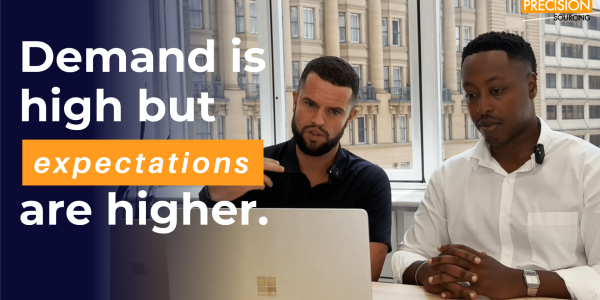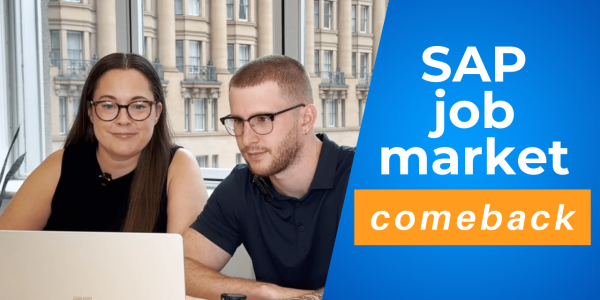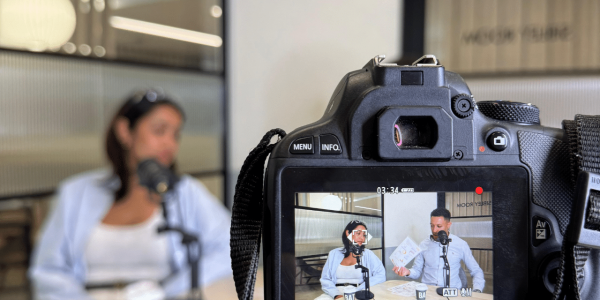The biggest challenge graduates face in today’s business world
All students face unique challenges throughout their academic life. University offers an opportunity of a lifetime! Providing an amazing platform to continue and further your education. Students will spend on average 3 to 5 years in university. Once they’ve graduated, what do you think is the biggest challenge graduates face in today’s business world? Do you remember the first CV you ever wrote? How about the first interview you attended once you graduated university?
My name is Danny Rauv, the newest Data Analytics Recruiter at Precision Sourcing. I too was a recent graduate struggling to find work until I nabbed my role here at Precision. I graduated from a Bachelor of Health Science (majoring in Health Sciences & Marketing) from the University of Sydney before making the commitment into recruitment. Strange isn’t it? How did a Health Science student end up in the recruitment industry?
I remember my last semester in university clear as day! My peers and I were applying for graduate jobs all over the place. Some found work relatively quick, others are still job hunting now. The aim for most of us was to get our “foot in the door” to gain some “industry experience”. All of us were facing the fear of the unknown, we all didn’t know what was going to happen to us.
Today’s business world has become so competitive that graduates now look at moving into industries that they might have not studied for. Many of you may be thinking that there are a multitude of graduate programs available. What happens when you aren’t successful though? What happens if you don’t make the cut?
During the very early stages of my recruiting career, I have spoken to several graduate candidates within the data space that have vocalised this problem. Graduates think that lack of “industry experience” is a major block that stops them from being successful in their job application.
It’s going to be tough to land for your first gig, but as graduates we aren’t expected to have industry experience. We aren’t expected to understand the commercial environment nor are we meant to be able to deliver results straight away. It takes time, effort and “experience” to be able to achieve these results.
So why do many graduate candidates feel that they face this block when finding work?
Long Liu and Candidate A (who wanted to remain anonymous) – are two of several graduate candidates I met with when I started at Precision Sourcing. They kindly offered some time to answer some of my questions regarding their job search so far.
Long Liu – PhD Graduate – Engineering
Long was one of the first graduate candidates that I spoke too. He is still on the hunt for his first opportunity and diversified his search. Long has applied for graduate positions in 2019 but ideally, he would like to land a position before that.
What do you think are the greatest challenges graduates face when they are trying to find their first job within the data industry?
The biggest challenge for Long so far in his job search is the fact that he doesn’t have much commercial experience. Long completed his PhD in Engineering at the University of Sydney, which he believes gives him the knowledge of analysing and processing data but only within an academic environment. He doesn’t know how to apply this commercially.
He believes this to be the main hurdle. Long understands that some businesses will offer internships which you can apply for during your academic years. This was difficult for Long to commit to, especially when he was taking too much time completing his PHD to even consider working an internship.
Out of 10, 1(easy) and 10(hard), how do you rate the difficulty of finding a graduate job and why?
Long rated the process 5/10. He hasn’t found a graduate job yet, but he believes that with his knowledge from his PHD studies it will enable him to find a job within the data space. He has started to apply for graduate programs but recognises the application process is a very lengthy and competitive one.
What technical tools do you think are essential and important for you to know heading into your first career opportunity within the data space?
As a Data Analyst or Data Scientist, Python & R packages are crucial because many organisations within the data space use these two tools. It is also important for you to demonstrate your abilities of these two tools. The key is understanding how to use these technical tools and apply it to real-life scenarios and situations.
Candidate A – Anonymous
Candidate A was someone that I also met 7 weeks ago and has been on a job hunt long before our chat. Candidate A was offered a new position which I’m super excited about. It took some time and a lot of effort, but Candidate A has now found work within the data space.
What do you think are the greatest challenges graduates face when they are trying to find their first job within the data industry?
The greatest challenge that Candidate A acknowledges to be the biggest block would be experience. As a graduate, you are lacking commercial experience. Most organisations are seeking individuals who are ready to contribute to the position or the role. Without commercial experience, it would limit your chances in landing your first gig.
Out of 10 – 1 (easy) and 10 (hard), how do you rate the difficulty of finding a graduate job and why?
Candidate A rated the difficulty as 7.5/10. After graduating from university, competition is fierce against other graduate candidates in similar situations. Candidate A believes that if you know the right people who can refer you to the right role e.g. someone from the HR team, you can overcome the issue.
The difficulty will rise to 8 or 9 if the only way you are trying to get a graduate role is by mass applying to different organisations. Graduate programs take a lot of time to apply for, and even though you might be mass applying, only 1 or 2 might get back to you for first round interviews. This method isn’t easy and does not guarantee that you are going to be successful.
What technical tools do you think are essential and important for you to know heading into your first career opportunity in the data space?
Candidate A believes that going forward, programming languages such as R and Python will be essential for one’s own personal development as a Data Analyst or Data Scientist. If you have knowledge in statistics, this is also a bonus.
Candidate A acknowledges that you need to have a great understanding in one programming language which will allow you to learn the fundamentals of another program. The ability to learn and apply other technical tools will help you to develop and grow your career.









